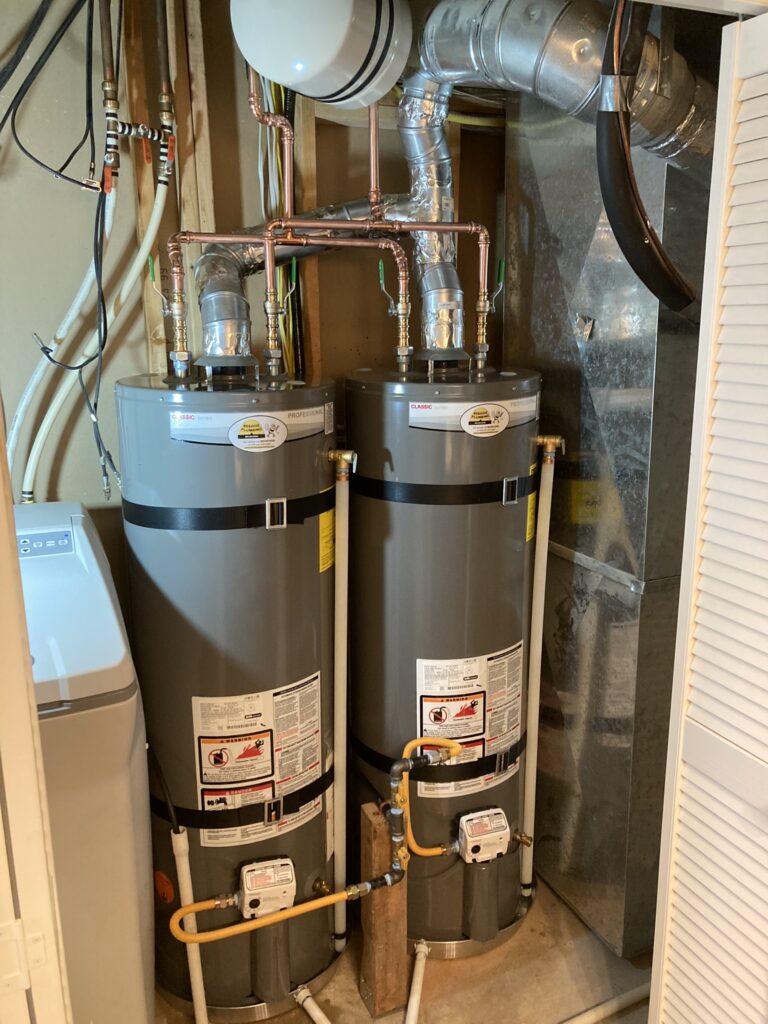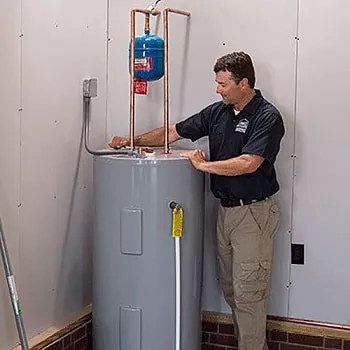Top-Rated Plumber Denton Offering Quality Plumbing Services You Can Trust
Top-Rated Plumber Denton Offering Quality Plumbing Services You Can Trust
Blog Article
Total Guide to Water Heating UnitSetup and Replacement
Understanding the details of water heating unit setup and substitute is important for house owners looking for to make sure effectiveness and integrity in their warm water supply. From picking the appropriate type and dimension to implementing a seamless setup procedure, numerous factors should be thought about to prevent usual challenges. This overview will certainly provide you with the required steps and insights to navigate the complexities of this home improvement task, while also emphasizing vital upkeep methods that can extend the life of your system. As you check out these elements, you may discover yourself reassessing your current setup and identifying areas for improvement.
Types of Hot Water Heater
When considering hot water heater setup and substitute, it is essential to recognize the numerous kinds of hot water heater available in the market. The most usual types include tank water heating units, tankless water heaters, heatpump hot water heater, and solar water heating units.
Storage tank water heaters are typical systems that store a specific volume of warm water, making them easily available when required. In contrast, tankless water heating systems supply hot water on demand, removing the requirement for storage.
Heatpump water heaters use electrical power to move warmth from the air or ground to warmth water, providing considerable power financial savings but needing more room and details installation conditions. Finally, solar water heating systems harness solar power to heat water, providing a green option with potential long-term cost savings, although they typically need a back-up system for gloomy days.
Comprehending these choices makes sure notified decisions regarding installment and substitute, satisfying specific demands and preferences.
Choosing the Right Dimension
Selecting the appropriate dimension for a hot water heater is important to ensure optimum performance and efficiency. A device that is as well small will battle to satisfy household needs, resulting in irregular hot water availability and boosted energy intake. Conversely, an extra-large water heating unit can cause unnecessary power waste and higher energy costs.
To determine the best dimension, think about the family's optimal warm water usage. This can be determined based on the number of residents and their typical warm water requirements. For example, a family of four may require a water heater with an ability of 50 to 80 gallons, depending upon the usage patterns, such as synchronised showers and laundry.
Furthermore, examine the recovery rate, which measures just how quickly a heating system can renew warm water after it has been used. For tankless designs, emphasis on the circulation rate, measured in gallons per minute (GPM), to guarantee it fulfills the house's simultaneous demand.

Installation Process Summary

Next, the old device needs to be disconnected and gotten rid of, taking care to adhere to regional codes and regulations relating to disposal. When the old device is out, the new water heating system can be positioned in position. This step entails linking the water supply lines, making sure that all fittings are leak-free and secure.
After establishing water links, it's important to connect the power read supply, whether electric or gas, adhering to the producer's guidelines meticulously. When all links are made, the system ought to be loaded with water, and the why not look here power can be turned back on. Lastly, it is essential to look for leaks and make sure the hot water heater is operating appropriately prior to completing the setup process.
Usual Installation Mistakes

One more constant mistake is disregarding to follow neighborhood codes and policies. Falling short to abide by these requirements can not just result in safety and security risks yet may likewise cause costly penalties or the demand for costly reinstallation. Furthermore, inappropriate venting is a vital concern. Inadequate ventilation can create dangerous gas buildup, presenting serious health dangers.
Incorrect plumbing connections are likewise a widespread blunder. Falling short to secure connections or using the wrong sort of fittings can result in leaks and water damage. Additionally, ignoring the value of a correct drainpipe frying pan can lead to considerable water damages if leaks do occur. Last but not least, inadequate insulation of pipelines can result in warmth loss, reducing performance. By staying clear of these usual setup errors, home owners can guarantee their hot water heater runs safely and efficiently, optimizing performance and durability.
Maintenance Tips for Long Life
Appropriate maintenance of a water heating unit is vital for its long life and optimal performance. Routine assessments and servicing can avoid costly fixings and prolong the device's lifespan. Begin by inspecting the temperature setup; it should generally be established between 120 ° F and 140 ° F for optimal power performance and safety.
Every six months, flush the container to get rid of debris build-up, which can harm heating effectiveness and cause corrosion. To do this, switch off the heater, attach a tube to the drain valve, and allow the water run until it is clear.
Anode poles should be checked annually and replaced when they are worn away. These rods aid avoid tank rust by bring in harsh elements in the water.
Furthermore, inspect the stress safety valve on a regular basis to guarantee it is functioning correctly. This valve is crucial for protecting against excessive pressure accumulation within the storage tank.
Last but not least, consider scheduling an expert maintenance check every few years for complete examinations and maintenance. By sticking to these upkeep pointers, homeowners can considerably improve the effectiveness, security, and lifespan of their water heaters, guaranteeing reputable warm water for many years ahead.
Conclusion
Finally, correct setup and maintenance of water heating systems are critical for guaranteeing effectiveness and durability (gas leak repair). Choosing the ideal type and dimension, sticking to setup standards, and preventing common blunders dramatically add to optimum performance. Regular upkeep checks and professional maintenance help sustain functionality and avoid pricey repair services. By comprehending these vital elements, home owners can achieve a reputable warm water supply while lessening potential issues associated to water heating system procedure.
Recognizing the details of water heating system setup and substitute is crucial for homeowners looking for to important site make certain performance and reliability in their warm water supply.Storage tank water heating units are traditional systems that save a specific volume of warm water, making them conveniently offered when required. In comparison, tankless water heaters supply warm water on demand, getting rid of the demand for storage space. Selecting a water heater that is either also little or as well large can lead to ineffectiveness, resulting in insufficient warm water supply or excessive energy usage.
By recognizing these essential aspects, property owners can attain a dependable warm water supply while decreasing prospective concerns connected to water heating unit procedure. water heater installation.
Report this page